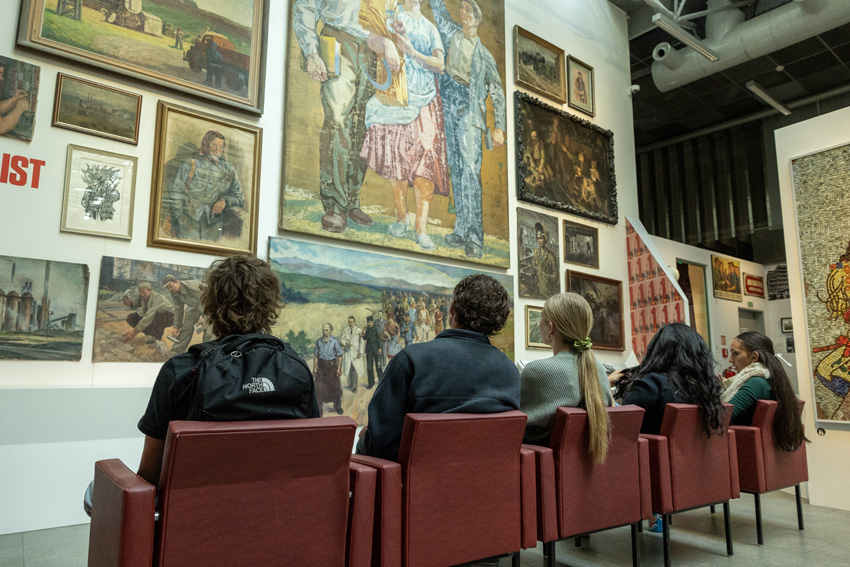The word is whispered through the halls, in the bathrooms and on the telephone lines. Sex- it’s everywhere. Television, music, radio and magazines display the message daily. Sex may even be a lunch break conversation topic among teens.
Sexuality is a common theme in many media mediums. Whether they are corporations, magazines, television programs or movies, sex sells and influences.
“Magazines for girls affect us so greatly,” Teryn Pruett, ’05, said. “They [magazines] make girls think that we are not good enough, they make us compare ourselves to skinny models and they also make it sound like it is okay to sleep around. We are told that if you get pregnant, there is always a way out.”
In his teen dating guidebook, Dateable, Jonathan Lookadoo explains the media’s control on young girls. Although it may not be naughty pictures like that of male pornography, the results can be just as destructive.
“Female pornography is the #1 thing that distorts a girls view of reality, men and relationships. Maybe you haven’t heard it called female porn. Maybe you know it by the softer more acceptable terms of ‘chick flicks’, magazines and romance novels,” said Lookadoo in his book.
Christa Williams, ’05, recalls reading an article and finding that her beliefs did not match up to what the media said was acceptable.
“Sometimes I will read an article or watch a movie that discusses what the ?world’ believes is appropriate for a young unmarried couple,” Williams said. “They make it sound like ?Oh, you’re going to mess around anyway, so here is how to do it safely.’ Magazines like Seventeen, Cosmopolitan, Teen People or Cosmo Girl seem to say that sex is fine as long as it is ?safe sex.'”
Obviously the world and its standards have changed a great deal in the past twenty years. Sex is a more prevalent topic in all aspects of media.
“Its sad how desensitized we are to all of the bad stuff that comes our way,” Kacie Filgas, ’05, said. “Most girls just watch T.V and read magazines because it’s the cool thing to do.”
On the other hand, some believe these magazines have a positive effect on people, possibly making the taboo questions a bit easier to swallow.
“In some ways magazines can be good for young women because there are a lot of things we [girls] are embarrassed to ask or think it is wrong to think about,” Alejandra Ramirez, ’05, said. “Some things can be easily clarified through sex articles and can be reassuring to insecure minds.”
For more information on teen issues, visit www.kaiserfamilyfoundation.org or for information on the book Dateable, visit www.lookadoo.com. Parents or students interested in reviewing magazines like Cosmopolitan, can go online at magazines.ivillage.com/cosmopolitan/.






